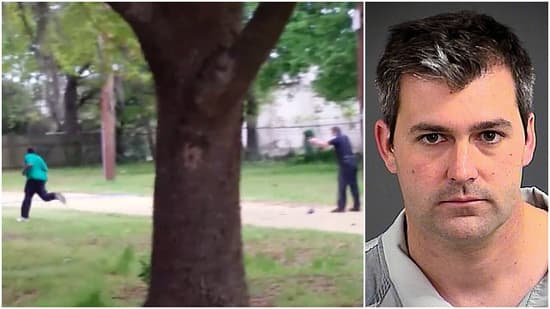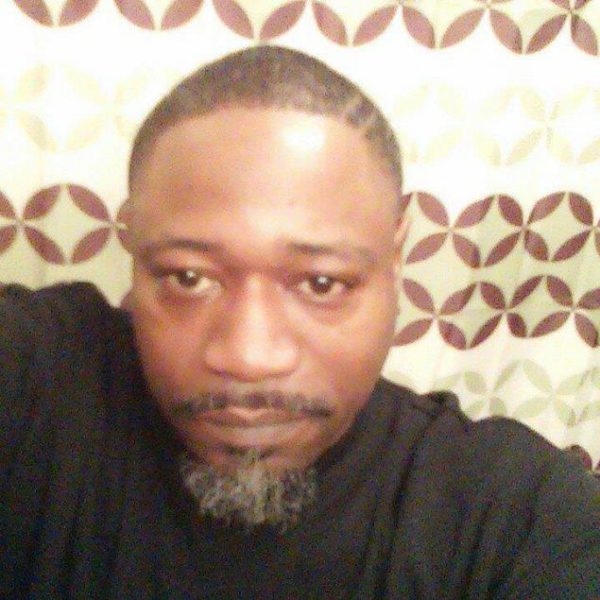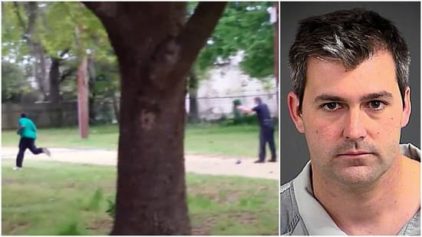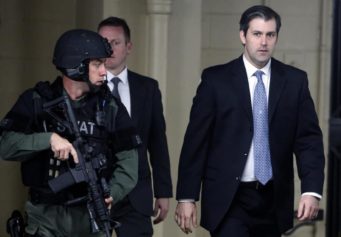The former South Carolina police officer convicted in the 2015 killing of unarmed Walter Scott is appealing his 20-year federal sentence, alleging his conviction was the result of ineffective counsel after his attorney failed to tell him about a potential plea deal offered by prosecutors.
Ex-North Charleston officer Michael Slager, who shot Scott five times in the back as he ran away following a traffic stop, is currently serving time in federal prison for the killing.
Slager pleaded guilty to a civil rights violation in the killing of Scott, admitting he did not shoot in self-defense and that he used excessive force. He was sentenced in 20 years in prison after a U.S. District Court judge determined the underlying offense Slager committed was second-degree murder in 2017. His 2016 state murder trial ended in a mistrial after one holdout juror apparently refused to consider the evidence against Slager and left the jury deadlocked at an 11 to 1 vote for his conviction.

Now Slager has brought a motion to vacate, set aside, or correct his sentence, claiming his counsel was ineffective.
This week, Slager’s new attorneys have argued at a virtual evidentiary hearing that his previous defense, led by Andy Savage resulted in his conviction.
Slager testified on Tuesday that he only agreed to a plea deal after Savage told him that the judge on the case, David Norton, said he didn’t believe it was a murder case, referring to the state trial. Slager said Savage told him he wouldn’t receive significant prison time after the judge had made the comment.
Slager’s ex-wife, Jamie Slager, testified that she had heard conversations about the judge’s alleged comment. “That’s why we decided to take the plea deal,” she said. “That’s why Mike, you know, is where he is.”
Savage said at the hearing that he feels bad about his handling of the case. “I feel terrible,” he said. “My judgment was blemished by all the good things that I knew about Michael.”
Savage said that, influenced by the judge’s comment, early in the negotiations with federal prosecutors he didn’t tell Slager about a potential plea deal that could have meant a sentence of 12½ to 15½ years.
While Slager pleaded guilty to the civil rights violation, the length of the sentence depended on how Norton interpreted the shooting. If it was interpreted to be voluntary manslaughter committed in the heat of the moment, Slager could have faced as few as seven years. Savage took Norton’s comment to mean the shooting would be ruled a manslaughter and recommended Slager plead guilty to a deal that included state prosecutors dropping their charges, but Norton ultimately ruled violation to be second-degree murder.
“I had misinterpreted signals that I received, one of which was from Judge Norton. I wanted Michael to get the best possible outcome, and he didn’t,” Savage said.
On the day of the shooting, Slager pulled 50-year-old Scott over for a broken taillight. Scott took off running and the two hit the ground in a struggle after Slager deployed a Taser. Scott then got back up and continued to flee. He was 15 feet away when Slager fired a total of nine shots, striking Scott in the back five times.

The incident was recorded by a bystander, although Slager did not know about the footage when he lied to investigators about what had happened.
Slager initially told investigators Scott had charged at him and stole his Taser.
During the final day of testimony at this week’s hearing, the judge assigned to the appeal, Richard M. Gergel, said Slager sought to blame the victim in his trial and was now looking to blame the judge and his lawyer.
“Malice was found because a law enforcement officer was shooting an unarmed man in the back and then lied about it,” JudgevGergel said. He added, “I think calling Mr. Savage ineffective is ridiculous.”
Anthony Scott, the brother of Walter Scott, spoke at the hearing this week and said he is interested to see how the process works out and that the Scott family has empathy for Slager wanting to spend time with his son as he grows up.
“On behalf of the Scott family, we do empathize with Michael, even though he’s still not accepted responsibility for murdering my brother,” Scott said. The still-grieving brother later went on to describe how the appeal is tearing open the Scott family’s old wounds.
“For us to have to see this over and over again, and keep coming back, it’s hard on the heart,” Scott said. “It’s a wound that continues to open. It’s like a scab that’s ripped off again. It’s brand-new. These proceedings have brought it back brand-new again because Michael chooses not to accept responsibility for what he has done.”


